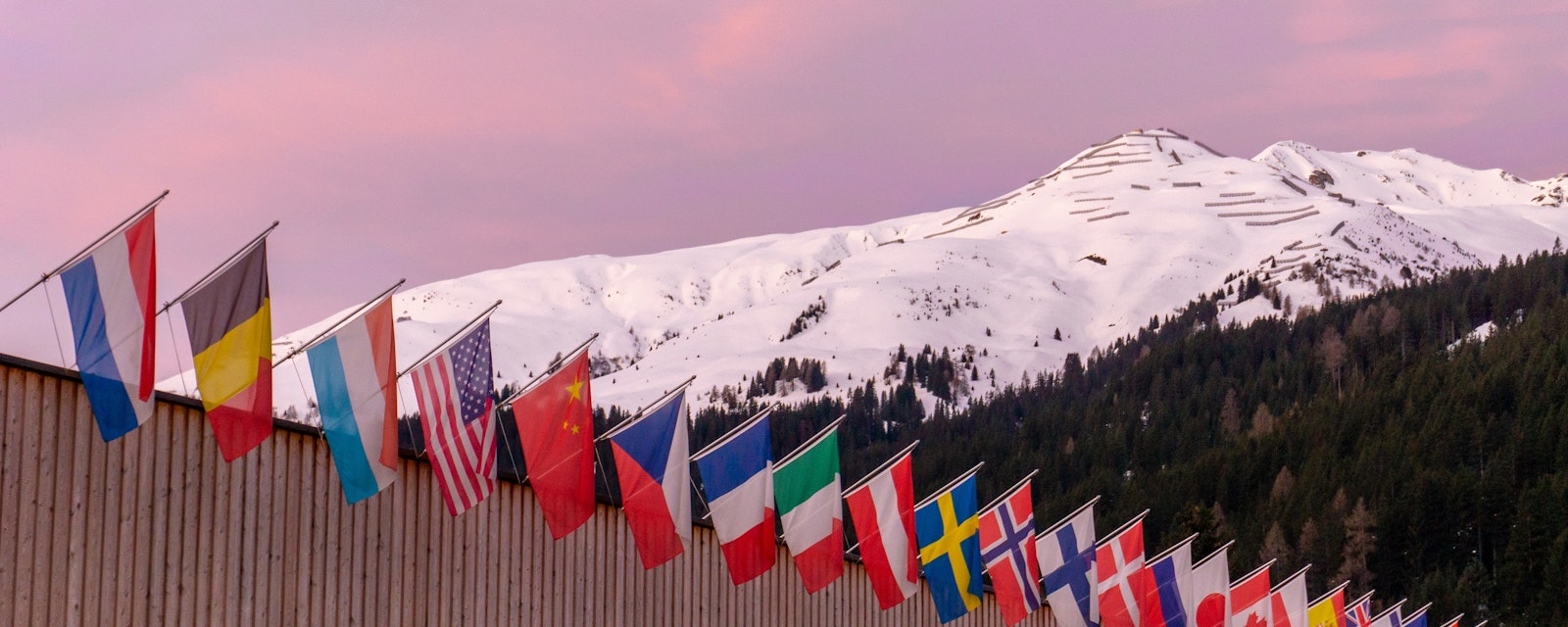The World Economic Forum’s Annual Meeting will take place from May 22, 2022 - May 26, 2022. After a hiatus in 2021 and a postponement from earlier this year, the convening in Davos will be held in person, with a particular focus on how to accelerate progress on pressing global challenges.
While a range of global developments and topics are on the agenda, the meeting in Davos presents a unique opportunity for the global community and the world’s largest and most prominent corporations to demonstrate their resilience to both the near and longer-term implications of Russia’s invasion of Ukraine as well as the continued impacts of the COVID-19 pandemic. In particular, we assess the convening will present global leaders with the opportunity to develop clear roadmaps that demonstrate resilience toward Russia’s military aggression, the second and third order consequences of the war in Ukraine and the continued impacts of the global COVID-19 pandemic.
Reframing of the Global Security Order Following Russia's Invasion of Ukraine
Russia’s invasion of Ukraine is nothing short of a watershed event for global security, triggering a new era of the international security architecture after decades of post-Cold War calm. Russia’s assault has already prompted a significant and rapid shift in NATO-member military spending, with Germany, Denmark, Belgium, Romania, Italy, Poland and Norway set to increase defense spending. Shortly after the invasion, German Chancellor Olaf Scholz announced a USD 113bn infusion into the country’s armed forces and indicated plans to increase defense spending from 1.53%of GDP to over 2%. The new threat landscape – one in which Russia has demonstrated its willingness and capacity to invade the sovereign territory of a European democracy – undermines long-held notions of continental security, pointing to a new geopolitical reality that has already strengthened Western-aligned security arrangements.
The urgent reassessments in European capitals are such that military neutral Sweden and Finland have also vowed to boost defense. Finland and Swden recently submitted their NATO applications, which immediately followed bilateral security declarations with the United Kingdom, focused on military aid and cooperation in the face of foreign military aggression. Russia’s continued assault on Ukraine will serve as the backdrop of this year’s World Economic Forum’s annual meeting, presenting global leaders with a unique opportunity to determine the blueprint of this new international security infrastructure.
Developing Resilience to the Longer-Term Impacts of the Ukraine War and the COVID-19 Pandemic
While the COVID-19 pandemic continues to rage and affect the health and livelihoods of millions of people around the world, governments and corporations have largely “reopened” and are looking to move past their “pandemic footing.” However, a range of second and third order consequences of the pandemic, further exacerbated by the war in Ukraine, are likely to continue to be felt in the near and medium term. In the wake of the COVID-19 pandemic, consumer demand for food and energy have driven prices to record highs. In March of this year, global food commodity prices hit an all-time high, with the UN Food and Agriculture Organization (FAO) recording a 12.6% increase in global food prices compared to February. Meanwhile, though companies are continuing to develop solutions to improve supply-chain resiliency, "post"-COVID-19 disruptions persist. These obstacles are further magnified by ongoing lockdowns and COVID-19 restrictions in China as well as the global reverberations of Russia's war in Ukraine.
With recessions looming in several G7 nations, Davos presents a unique opportunity for global leaders to come together on concrete strategies to develop resilience to these second and third order consequences and to soften the landing of a global recession. We recommend corporate leaders lead discussions around ensuring global economic growth while countering inflation amid the war in Ukraine, as well as increasing global COVID-19 vaccination rates as the pandemic endures.
Europe's Road to Energy Independence from Russia
Russia’s invasion of Ukraine and the West’s attempts to levy crippling punishments on the Kremlin have put a magnifying lens on Europe’s dependence on gas imports from Russia. Pre-invasion, Russia provided 47% of the European Union’s imported coal and other solid fuels, 41% of its imported natural gas, and 27% of its imported crude oil. The EU has indicated a commitment to accelerating its energy independence from Russia, with EU officials stating their intention to cut gas imports from Russia by two-thirds in 2022 and gain complete energy independence from Russia "well before 2030." Davos presents a distinct occasion to present detailed proposals to implement this strategy.
As the EU moves to rapidly reduce dependence on Russian energy exports, global leaders should utilize Davos 2022 to build consensus and develop collaborative projects to increase the scale and pace of the clean energy transition. Working with government officials, thought leaders from the energy and finance industries should seize this opportunity to emphasize the deployment of capital in reaching the goals of the 2030 Agenda for Sustainable Development. Russia's war in Ukraine has only emphasized the importance of reducing dependence on fossil fuels.
Conclusion & Implications for Businesses
While World Economic Forum’s annual meeting will likely result in extensive discussions around key global challenges related to continental security and energy independence, Davos provides an additional opportunity for corporations to ensure that their operations are in compliance with existing and emerging sanctions, as well as clarify long-term positions toward the Russian market. The Davos convening, as well as the initiatives that come out of it, will provide firms the opportunity to reassess or realign these positions. A uniform, C-suite-driven communications and resilience strategy, as well as regular assessments of direct or third-party links to Russia, are critical to this.




